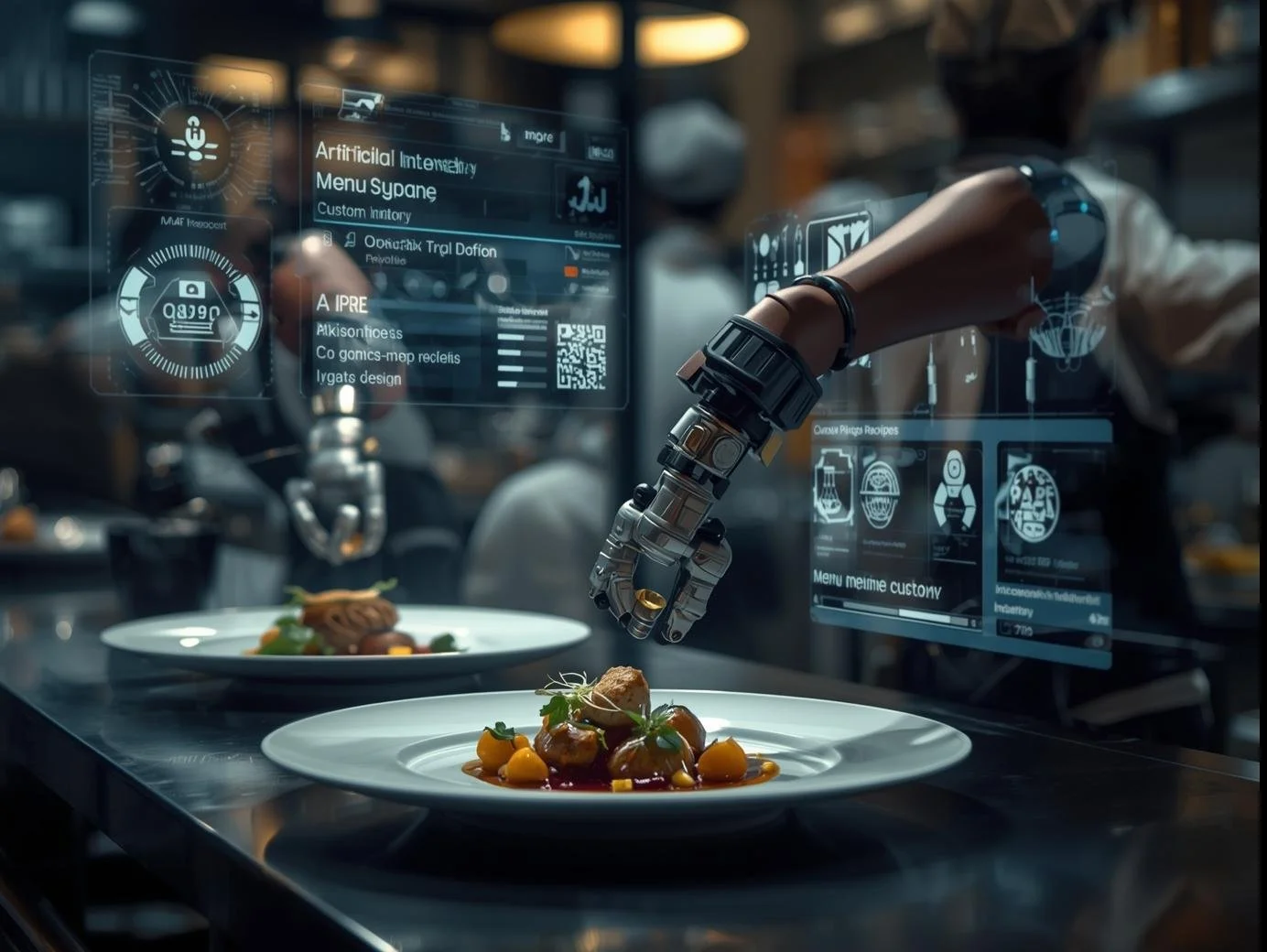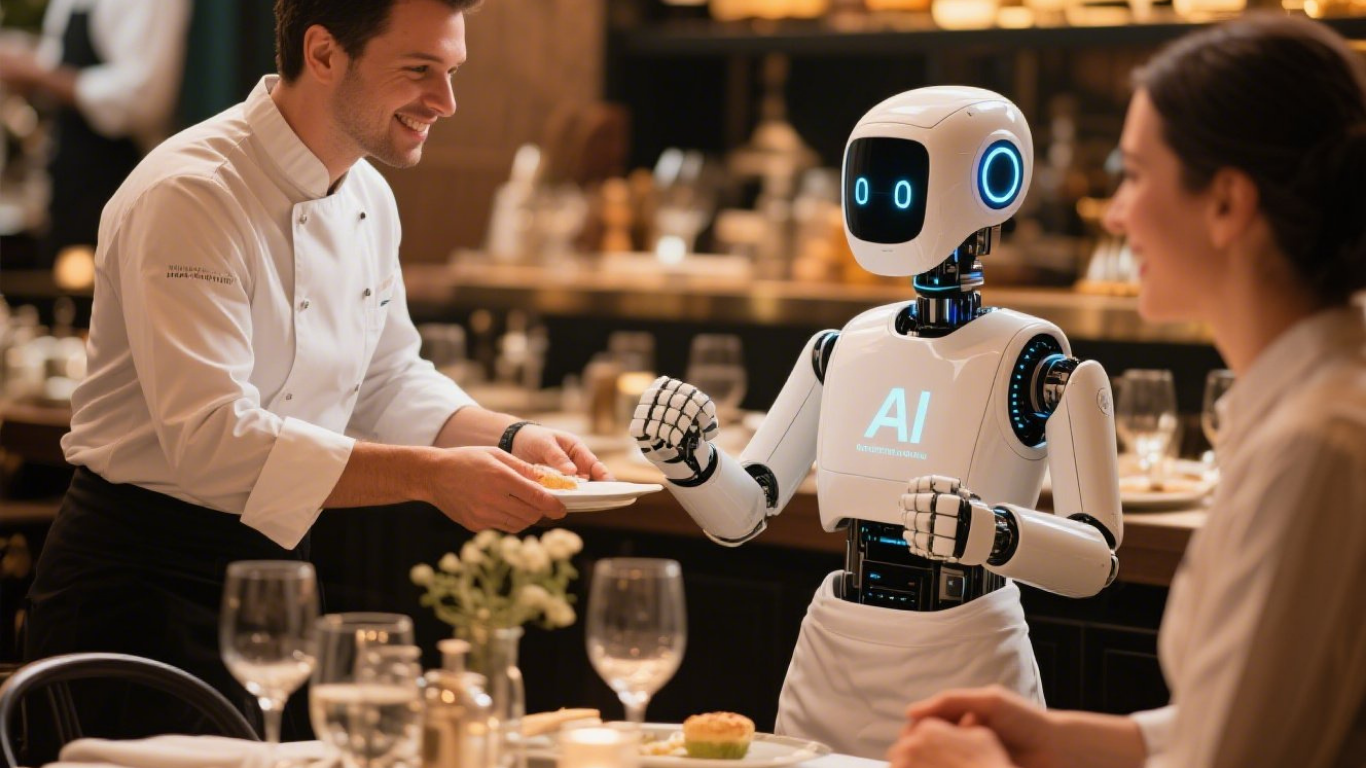AI in the Pan
In just a few years, restaurant kitchens will never be the same. Artificial intelligence is making its way deeper into the culinary industry, transforming the way we cook, manage resources, and interact with guests. From robots that cook on their own to menus tailored to each guest’s preferences, the future promises a culinary revolution.
If in the past the success of a restaurant depended primarily on the chef’s talent and the freshness of the ingredients, in the near future it will increasingly depend on the ability to integrate technology. Artificial intelligence (AI) is becoming an invisible yet highly efficient “co-chef”: it analyzes sales data, anticipates demand, reduces waste, and even suggests unexpected flavor combinations. Behind a perfect plating or a memorable recipe, there will more and more often be an algorithm, working side by side with the kitchen team.
Artificial Intelligence in Restaurant and Hotel Kitchens
Why Should Chefs Learn About Artificial Intelligence?
Artificial Intelligence is no longer a futuristic idea limited to films or research labs—it is already present in restaurants, hotels, and modern professional kitchens. From designing tailored menus and streamlining inventory management to robotic cooking systems and smart assistants that recommend recipes, AI is becoming an essential partner in the culinary world.
The Impact of Artificial Intelligence on the HORECA Industry and the Advantages for Chefs
Artificial Intelligence and the Future of the HORECA Industry
Artificial Intelligence (AI) is rapidly becoming a game-changer for the global HORECA sector (Hotels, Restaurants, Catering). While technology in hospitality is nothing new, the latest generation of AI tools offers a level of efficiency, precision, and personalization that was unimaginable a decade ago. However, with innovation comes disruption – and the way businesses adapt will determine whether AI is a competitive advantage or a missed opportunity.
The Future of Food: What Will Be on Our Plates in 2050?
As the global population races toward 10 billion by mid-century, and climate change threatens agricultural stability, one question becomes urgent and universal: What will we eat in the future?
From lab-grown meat and insect protein to AI-designed meals and vertical farming, food innovation is accelerating rapidly. This article explores the key pillars shaping tomorrow’s nutrition — grounded in sustainability, health, and technology — and the ethical dilemmas that accompany them.




